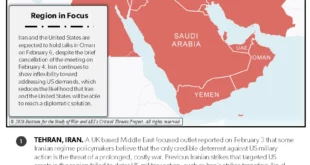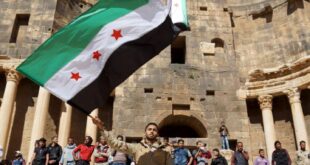DUBAIÂ – Egyptian President Hosni Mubarak said Syria was part of the problem in Lebanon, calling on Damascus to help resolve the 15-month crisis before hosting an Arab summit next month.
“The summit will be held in Syria and Syria is linked to the Lebanese problem. Therefore I hope that Syria would solve the problem,” Mubarak said in remarks aired on Al Arabiya television on Tuesday.
“We should not be (in Damascus) resolving a problem that Syria is a party to,” Mubarak said during a visit to Bahrain as part of tour of Gulf Arab countries aimed at unifying positions ahead of the annual Arab League summit.
Arabiya said Mubarak’s remarks were originally broadcast by Bahraini television.
Lebanese Prime Minister Fouad Siniora said last week the summit would collapse if Lebanon remained without a president because of a power struggle pitting his Western-and Saudi-backed government against an opposition led by the Shi’ite Hezbollah group, supported by Syria and Iran.
“I hope the Arab summit is held with full force (attendance). But there are problems such as the Lebanon problem which is a fundamental one,” said Mubarak, whose country and regional power Saudi Arabia have been leading mediation efforts to help Siniora’s government resolve the standoff.
Syria is keen for high-level representation at the March 29-30 summit but Arab divisions over Lebanon have cast a shadow over the meeting. Diplomats said Saudi King Abdullah and Mubarak might miss the summit.
A senior Syrian Foreign Ministry official said on Sunday that Damascus hopes a president will be elected in Lebanon in time to attend the meeting.
This month the United States expanded economic sanctions on Syria, first imposed in 2004, for what it described as Syria’s role in destabilizing Lebanon. Damascus says achieving stability in Lebanon is in its national interest.
 Eurasia Press & News
Eurasia Press & News



